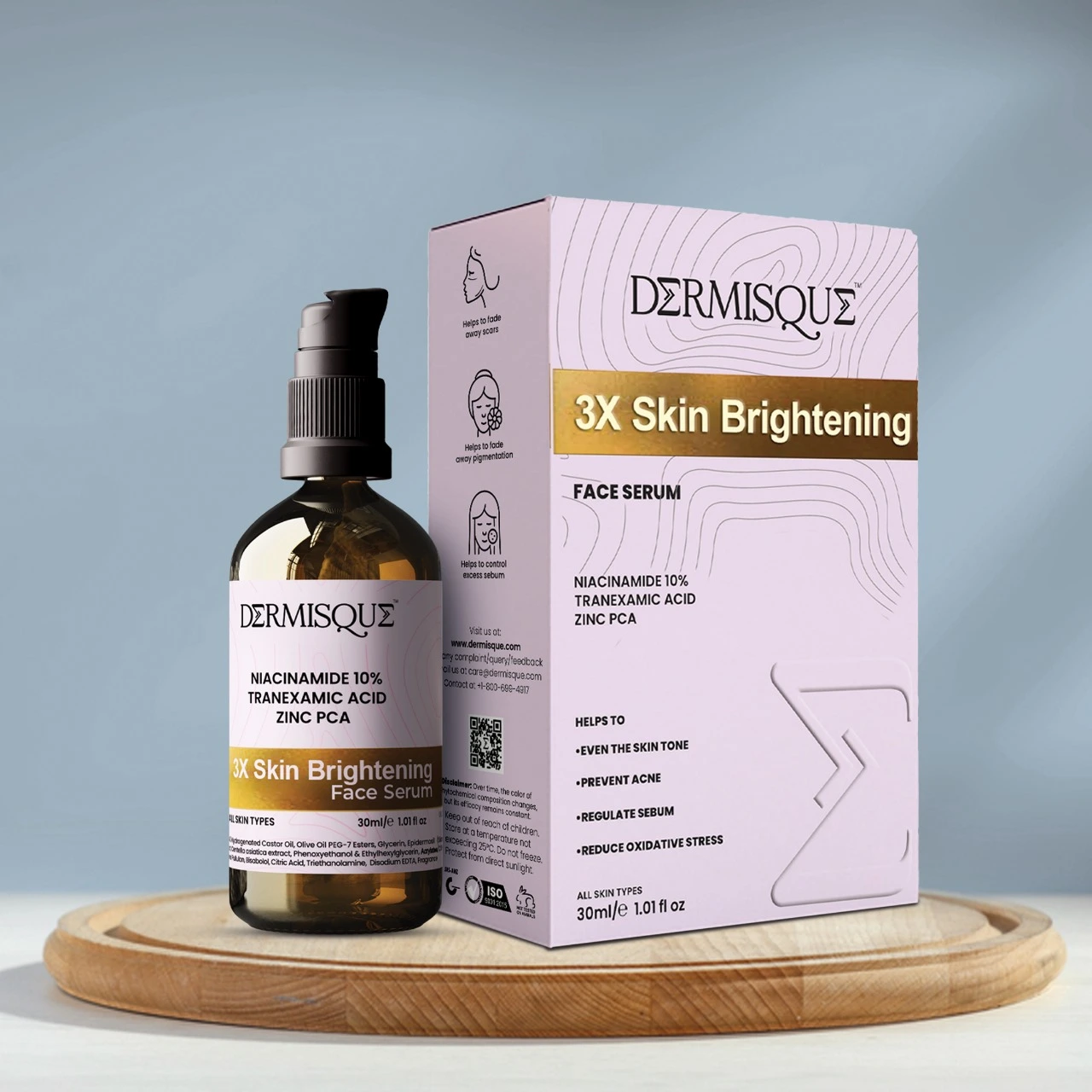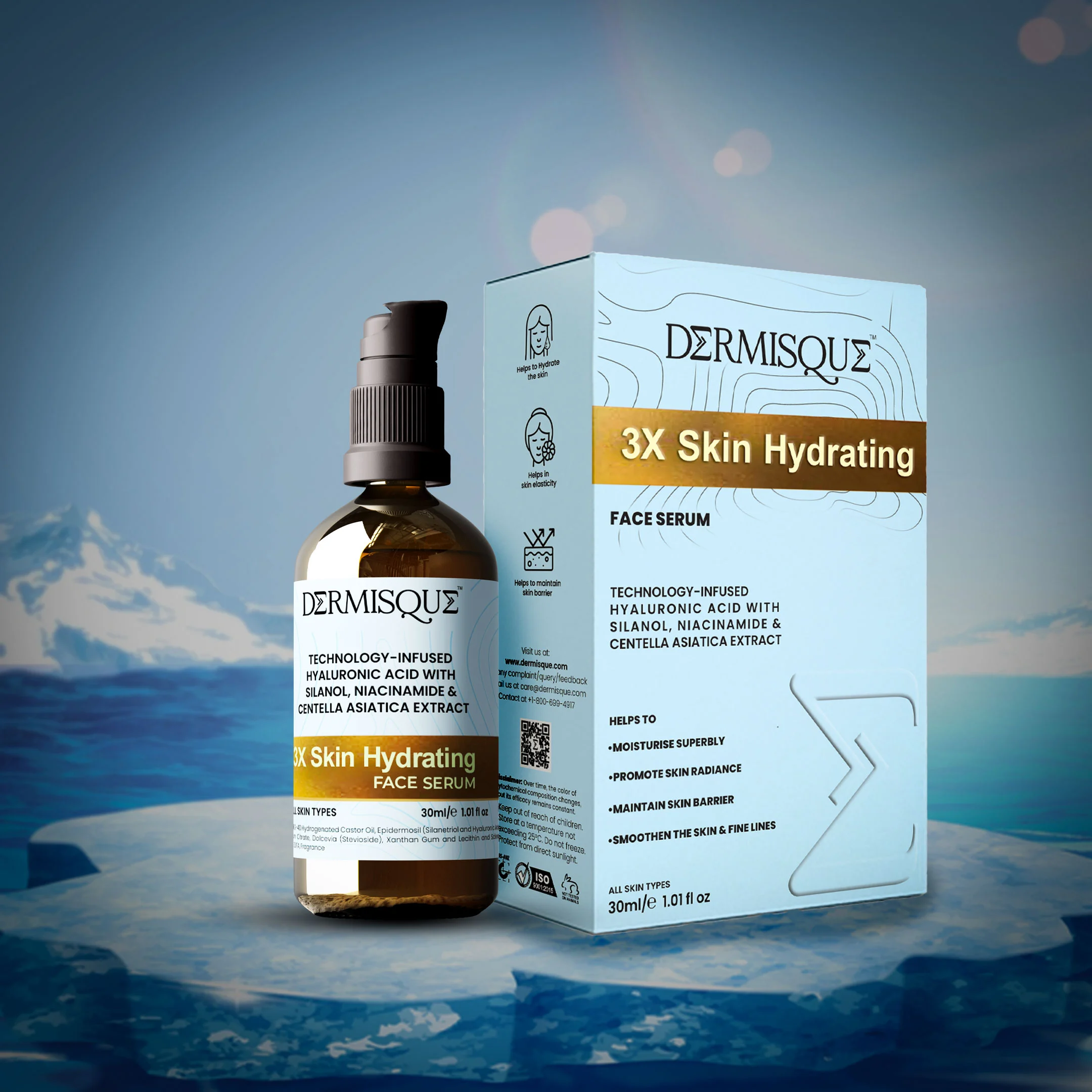
5 Reasons for Dull Skin You Wish You Knew Before
Blog We all desire radiant, glowing skin, but sometimes it feels like an elusive goal. Despite using high-quality skincare products and following a strict routine, you might still be struggling with dull, lackluster skin. Understanding the root causes of this issue is essential for achieving that coveted healthy glow. Here are five reasons for dull skin you wish you knew before 1. Dehydration: The Silent Skin Duller Dehydration is one of the most common, yet overlooked, causes of dull skin. When your skin lacks adequate moisture, it can appear dry, flaky, and lifeless. The outer layer of the skin needs to be well-hydrated to maintain a smooth texture and vibrant appearance. Causes of Dehydration: Insufficient Water Intake: Not drinking enough water is a primary cause of skin dehydration. Aim for at least 8 glasses a day to keep your skin hydrated from within. Environmental Factors: Exposure to harsh weather conditions, such as wind and cold, can strip the skin of its natural moisture. Similarly, air conditioning and heating systems can create a dry indoor environment that dehydrates the skin. Overuse of Harsh Skincare Products: Some cleansers and treatments can be too harsh and strip the skin of its natural oils, leading to dehydration. Always opt for gentle, hydrating products. Solution: Incorporate hydrating serums, such as Dermisque’s 3X Skin Hydrating Face Serum, into your skincare routine. This serum provides deep hydration and helps restore the skin’s natural barrier, keeping it plump and radiant. 2. Accumulation of Dead Skin Cells The buildup of dead skin cells on the surface of your skin can cause it to look dull and feel rough. As we age, our skin’s natural exfoliation process slows down, making it more important to assist in the removal of these dead cells. Causes of Dead Skin Cell Accumulation: Aging: As you age, your skin’s ability to shed dead skin cells decreases, leading to an accumulation that dulls the complexion. Lack of Exfoliation: Not exfoliating regularly allows dead skin cells to build up over time. This can block pores and create a rough texture. Dry Skin: Dry skin is more prone to retaining dead skin cells, which can cause flakiness and a lack of radiance. Solution: Regular exfoliation is key. Use a gentle exfoliating scrub or a chemical exfoliant like glycolic acid to remove dead skin cells and reveal a brighter, smoother complexion. However, avoid over-exfoliating, which can damage the skin barrier and lead to irritation. 3. Poor Circulation Healthy blood circulation is crucial for maintaining vibrant skin. It helps deliver essential nutrients and oxygen to skin cells, promoting a healthy, glowing complexion. Poor circulation can result in a dull, tired-looking appearance. Causes of Poor Circulation: Sedentary Lifestyle: Lack of physical activity can slow down circulation, affecting the skin’s health. Smoking: Smoking constricts blood vessels, reducing blood flow to the skin and depriving it of vital nutrients and oxygen. Poor Diet: A diet lacking in essential nutrients can impair circulation and overall skin health. Solution: Incorporate regular exercise into your routine to boost circulation. Activities like yoga, jogging, or even a brisk walk can significantly improve blood flow. Additionally, consider facial massages to stimulate circulation and enhance skin radiance. Facial rollers and gua sha tools are excellent for this purpose. 4. Exposure to Environmental Pollutants Environmental pollutants, such as smog, dust, and UV radiation, can wreak havoc on your skin. These pollutants generate free radicals that damage skin cells, leading to premature aging and a dull complexion. Causes of Environmental Damage: Urban Living: Living in a city exposes you to higher levels of pollution, which can penetrate the skin and cause damage. UV Radiation: Prolonged exposure to the sun’s harmful UV rays can cause oxidative stress and damage skin cells, leading to dullness and hyperpigmentation. Climate Conditions: Harsh weather conditions, such as extreme heat or cold, can strip the skin of its natural oils and moisture, causing it to look dull and tired. Solution: Protect your skin by using a broad-spectrum sunscreen daily, even on cloudy days. Dermisque’s Daily SPF 50 offers excellent protection against UV radiation. Additionally, incorporate antioxidants into your skincare routine. Products containing vitamin C, niacinamide, and green tea extract can help neutralize free radicals and protect your skin from environmental damage. 5. Stress and Lack of Sleep Your lifestyle and mental well-being have a significant impact on your skin’s health. Chronic stress and inadequate sleep can lead to dull, tired-looking skin. When you’re stressed or sleep-deprived, your body produces more cortisol, a stress hormone that can impair skin function and lead to various skin issues. Effects of Stress and Lack of Sleep: Impaired Skin Barrier: High cortisol levels can weaken the skin barrier, leading to moisture loss and increased sensitivity. Inflammation: Stress triggers inflammation, which can exacerbate skin conditions like acne, eczema, and psoriasis. Slower Cell Turnover: Lack of sleep affects the skin’s natural repair process, slowing down cell turnover and leading to a dull complexion. Solution: Prioritize self-care and ensure you get at least 7-8 hours of quality sleep each night. Incorporate stress-relief practices such as meditation, yoga, or deep-breathing exercises into your daily routine. Additionally, consider using skincare products that support skin repair and rejuvenation during sleep. Night serums and creams rich in peptides and retinol can help enhance the skin’s natural repair process. Conclusion: Achieving radiant, glowing skin is not just about using the right products but also about understanding and addressing the underlying causes of dullness. By tackling dehydration, dead skin cell buildup, poor circulation, environmental damage, and the effects of stress and lack of sleep, you can significantly improve your skin’s health and appearance. Remember, a holistic approach to skincare, combining effective products with a healthy lifestyle, is the key to unlocking your skin’s natural radiance. If you want to explore more into this topic and are also looking for sustainable healthy skin care solutions that will help you combat better with dull skin, head over to Dermisque and get the best range of healthy products for you skin today. Related



